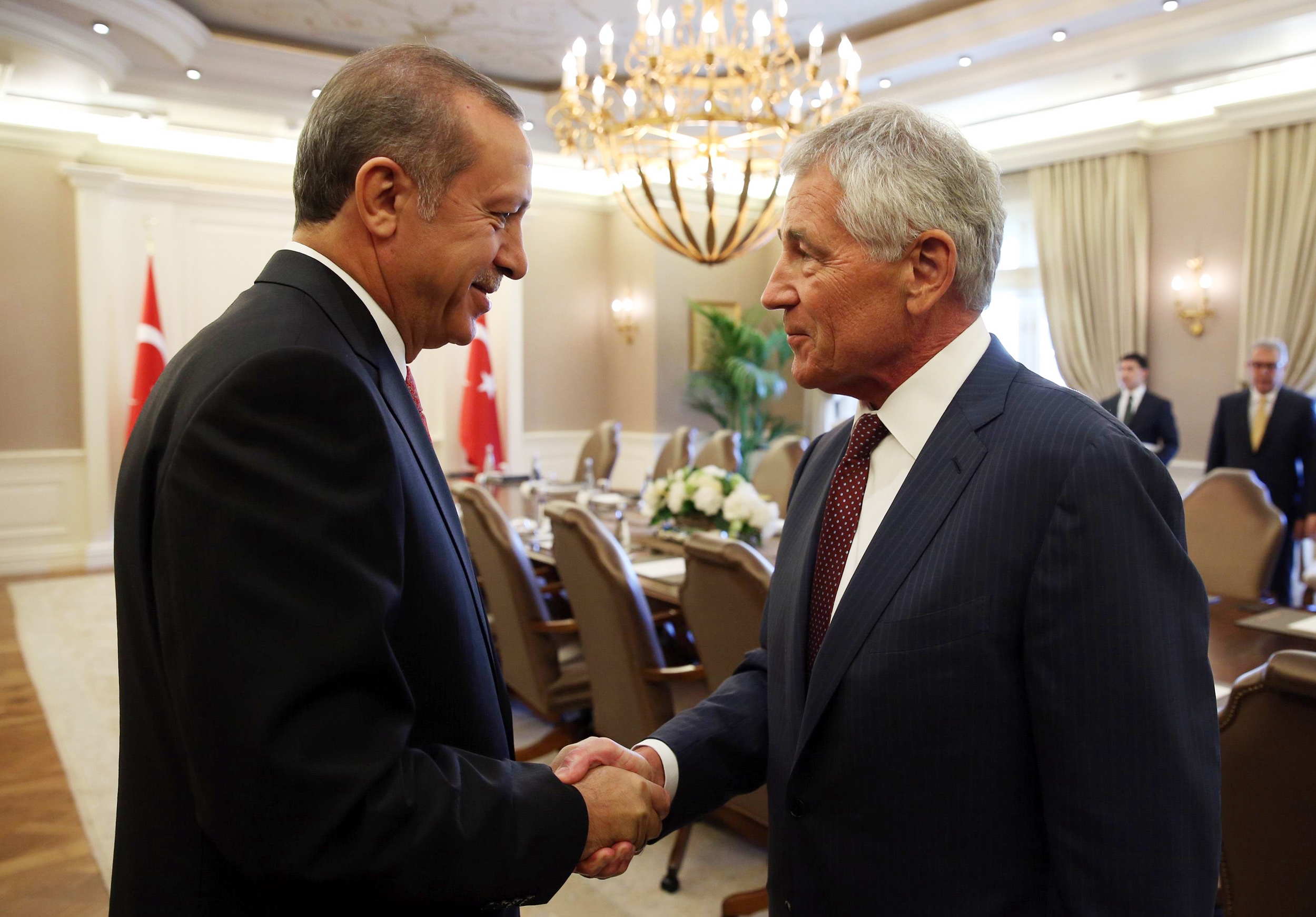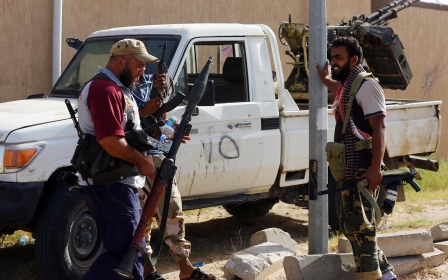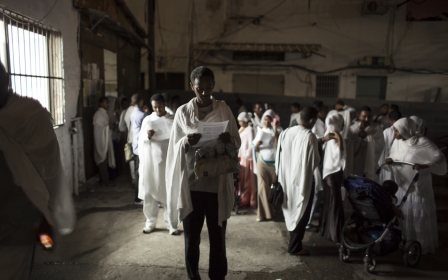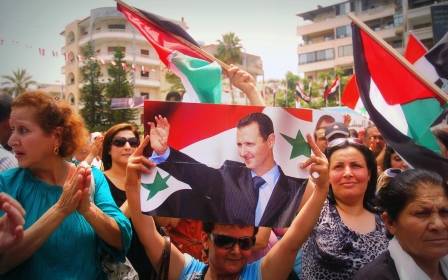Analysis: Turkey’s murky position on the anti-IS coalition

US Secretary of State John Kerry flies into Ankara for talks with the Turkish government on Friday. His visit comes hard on the heels of US Defence Secretary Chuck Hagel who was in the Turkish capital on Monday with Derek Chollet, the assistant secretary of defence for International Security Affairs, discussing cooperation with the Turks over action against the Islamic State militant group.
In any combined NATO operations against IS, active Turkish participation may be critical for its success. Turkey’s borders with Syria and Iraq stretch for nearly 1,200 km. IS now controls at least three crossing points on the Turkish-Iraqi border and Qamishli on the Syrian border. America’s air-base at İncirlik outside Adana is one of the US’s main strategic assets in the Middle East, though the Turks have seldom been willing to allow it to be used by American forces in Middle Eastern conflicts. Above all, Turkey has the second-largest land army in NATO and a strong air force and could potentially play a powerful military role in the Middle East if it was ever minded to do so.
Last week, a meeting between Presidents Obama and Erdoğan at the NATO summit in Wales, went off surprisingly well, with Erdoğan seemingly very pleased with the talks. But a week later, despite a series of meetings with top US officials, Turkey has still not said openly whether or not it will join the anti-IS coalition which President Obama is trying to create. A meeting of top Turkish security officials and ministers met in Ankara on Wednesday, but until now, there has been no announcement regarding what, if anything was decided. Nor is there any word about Turkey’s line at the anti-terrorism meeting in Saudi Arabia, where together with the US, Egypt, Jordan, and the Gulf Cooperation Council, it will try and thrash out a strategy over IS.
One staunchly pro-government newspaper, Yeni Şafak, reported on Thursday morning that Turkey had decided to “stay well away” from the coalition, but the paper is strongly opposed to Turkey joining the coalition. So far, its report has not been followed up anywhere else.
There are several reasons why Turkey, the only Muslim country in NATO, could be reluctant to join the coalition - at least openly. Topping the list of objections to doing so, is the fate of 49 Turkish officials and workers in the Turkish Consulate-General in Mosul who have been held as hostage since IS arrived there on 11 June. There is a court order for a news blackout in Turkey about the hostages; some opposition writers have accused the government of using the hostage issue as an alibi for inaction, saying it should have given IS an instant ultimatum to release the prisoners or face retribution.
Second, there is always reluctance in Turkey to become directly involved in Middle Eastern conflicts, and it appears that a large section of conservative Sunni opinion inside the ruling AKP might be unhappy at supporting a Western-led strike against fellow Sunnis.
Third, there is the Kurdish factor. The Kurds of Syria, an offshoot of the PKK of Turkey, have been battling against the forces which became IS for nearly two years, with Ankara standing aside in the conflict. Despite the “peace process” under way with the Kurds, a key plank in the Turkish government’s programme, Ankara neither wants to cooperate with the PKK and its subsidiaries, nor does it wish to see Western governments arm them, as Britain and Germany have indicated they will do.
But the biggest objection may lie in domestic politics. To give facilities to foreign troops in the “core coalition,” the government would have to get a vote of approval from parliament. In March 2003, the then government of Erdoğan, lost a parliamentary vote to supply facilities for the invasion of Iraq when deputies from the ruling AKP defected and voted with the opposition. This led to five years of frigid and confrontational Turkish-US relations. However this time, the main opposition, The Republican People’s Party, says it supports action against IS.
The party’s stance reflects worry about IS among Turkish secularists. Atilla Kart, an RPP deputy for Konya, recently claimed 3,000 young men from his constituency, had links with IS and several dozen had actually gone to fight for it. But it is doubtful that the RPP would go as far as backing active military cooperation with the US.
The AKP, so far, seems rather less worried by IS, apparently believing that it will not attack Turkey. It is not clear that Turkey fully woke up to the nature and potential danger of IS before June. During the early part of the year, it is clear that Turkey was covertly ferrying supplies of some kind across the border into northern Syria. Their exact destination remains a closely guarded secret.
In recent weeks, the Turkish attitude towards IS has become distinctly critical, and Western officials say there is now identity of attitudes between them and the Turks over it. Richard Moore, British ambassador to Ankara, told journalists at the beginning of September that there “is not a cigarette paper of difference,” between NATO allies and Turkey over IS.
To maintain good relations with the US, President Erdoğan must convey to Kerry that he is offering cooperation to the NATO-led coalition, though it may only be clandestine cooperation. Will that be enough? Since 2007, the Americans have been generous to Turkey in supplying intelligence and easy access to the White House, but over the last year a feeling has been growing in Washington that the US has received little in return - and that Turkey may be drifting away from NATO and the West. President Obama’s statement on Wednesday that the US may strike at IS targets in Syria, however, may bring the two countries closer, since Ankara may hope that it will also ease the way for US strikes against Syrian government positions, something it would dearly love to see.
If the Saudi anti-terrorism meeting produces a strong Middle Eastern coalition against IS, however, that might ease the way for active participation in the coalition, though the issue of the 49 Turkish hostages in Mosul remains.
Middle East Eye propose une couverture et une analyse indépendantes et incomparables du Moyen-Orient, de l’Afrique du Nord et d’autres régions du monde. Pour en savoir plus sur la reprise de ce contenu et les frais qui s’appliquent, veuillez remplir ce formulaire [en anglais]. Pour en savoir plus sur MEE, cliquez ici [en anglais].




